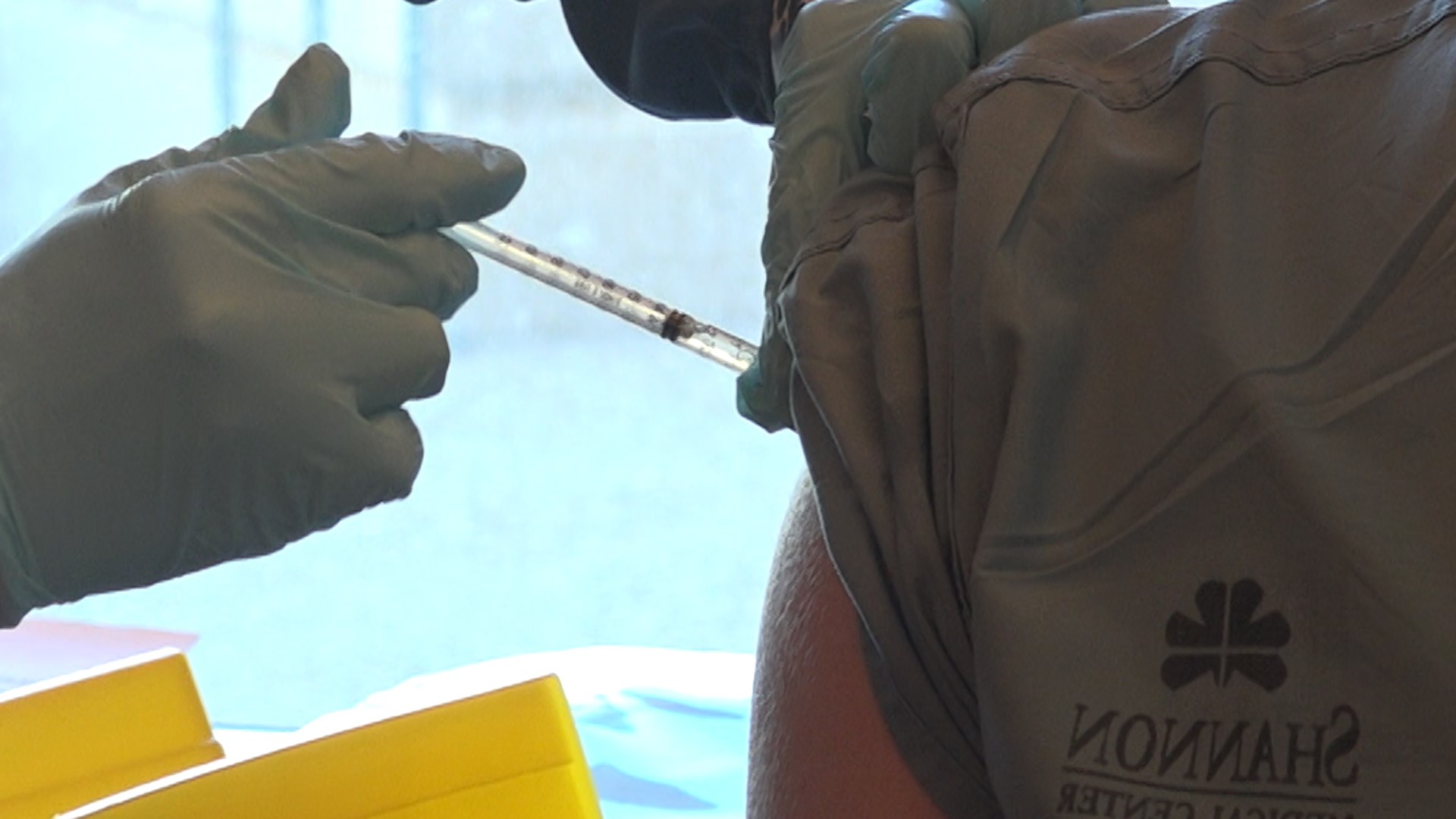SAN ANGELO, Texas — The COVID-19 vaccine is not like most vaccines that we are used to taking. According to the Centers for Disease Control and Prevention, most vaccines place a weakened or inactivated germ into our bodies that imitate an infection and allows our bodies to trigger an immune response. The COVID-19 vaccine, however, is an mRNA vaccine, which does not contain inactivated disease-causing organisms. Instead, an mRNA vaccine teaches our cells how to make a protein that triggers an immune response inside our bodies. That immune response produces antibodies, which is what protects us from getting infected if the real virus enters our bodies.
"It's just a little piece of a messenger RNA. So, you're not actually getting a mild infection from it, you're just getting a piece from it, letting your body know that's a foreign, dangerous enemy to you; so you build up your immunity, so when you're exposed to it, you'll be protected," said Dr. Carolina Ojeda Flores, MD. Flores was the second person to be injected with the COVID-19 vaccine at Shannon Medical Center on Tuesday, December 15.
mRNA technology is relatively new compared to other forms of vaccines, however, researchers have been studying and working with them for decades. mRNA vaccines are faster and cheaper to produce than traditional vaccines, and an mRNA-based vaccine is also considered to be safer for the patient, as they are not produced using infectious elements. Dr. Michael Wood, who works in the COVID unit at Shannon Hospital and was the first person to receive the vaccine on Tuesday, says just because it's newer, doesn't mean it's not reliable. In fact, he believes the COVID-19 vaccine is a testament to the advancement of technology.
"A typical flu shot has an efficacy of about 70%. This new Pfizer vaccine that I received today is 95% effective. As science, technology and humanity progress, I think we should utilize these new technologies to save more lives and prevent illness. I highly encourage those considering it to talk to people who have gotten it, get real-world feedback on it, don't just trust what you've read on the internet," he said.
The vaccine is likely not going to be available to the general public for quite some time. Dr. Wood and Dr. Flores both recommend people keep tabs on those who have received the vaccine, see how it affects them, and then if you do get the chance to take it, make sure you consult with a medical professional before deciding whether you will choose to receive the vaccine.

